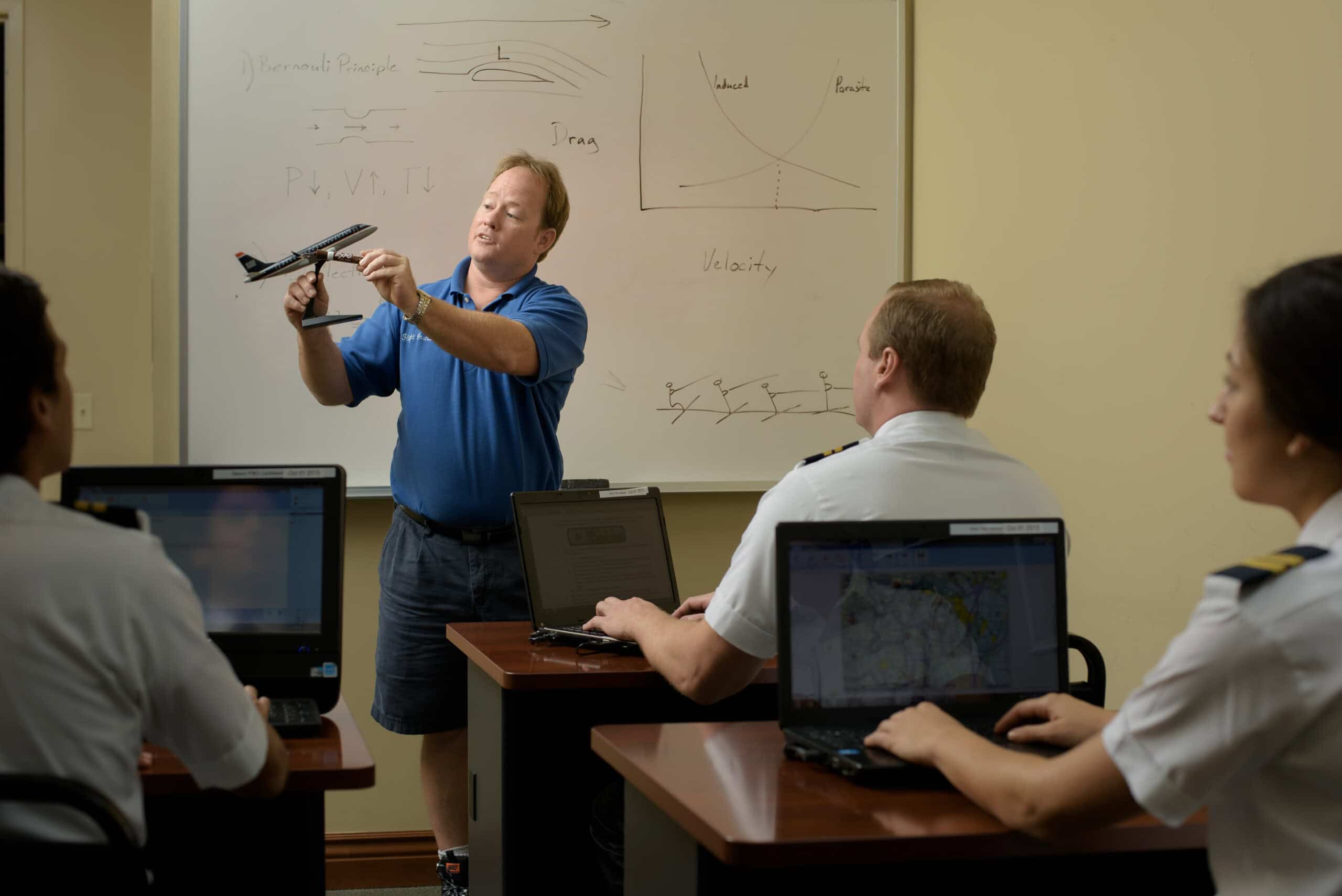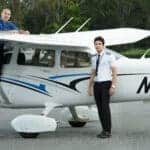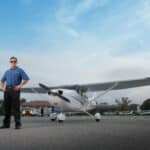The Ultimate Guide to A320 Type Rating: What Every Pilot Needs to Success

The Airbus A320 ranks among the most commonly used commercial aircraft in the world, with more than 9,000 planes serving airlines globally. Commercial pilots consider getting an A320 type rating a significant milestone that advances their aviation careers.
The path to your rating certification demands detailed training beyond simple pilot qualifications. This specialized course gives you specific knowledge and skills you need to fly the aircraft safely and effectively.
Let me walk you through everything about rating certification. You’ll find the core requirements, training elements, technical systems, and simulator training expectations. The guide also covers career opportunities after certification. This resource will guide your path to success, regardless of whether you’re starting as a new commercial pilot or an experienced aviator ready to transition to the A320.
Understanding A320 Type Rating Fundamentals
The A320 type rating is the life-blood of your path to becoming an airline pilot. This certification serves as your gateway to fly one of the world’s most popular commercial aircraft.
What is an A320 Type Rating and Why it Matters
It qualifies pilots to operate the Airbus A320 and its family of aircraft. Pilots gain detailed knowledge of aircraft systems and vital skills needed to operate specific jet aircraft. It lets you fly multiple aircraft variants – the A318, A319, and A321 series – with just one certification.
Key Requirements and Prerequisites for A320 Type Rating
You need to meet these vital prerequisites to get your A320 type rating:
| Requirement Category | Specifications |
|---|---|
| License | Valid Commercial Pilot License (CPL) |
| Flight Experience | Minimum 25 hours on multi-engine aircraft* |
| Medical Certification | Valid Class 1 Medical Certificate |
| Communication | Flight Radio Telephony Operator’s License (FRTOL) |
*Note: You can complete up to 10 hours in an approved simulator
Training Components Breakdown
Your rating course has several integrated parts that build detailed expertise:
1.Ground School Training (80+ hours):
-Aircraft systems instruction
-Flight Management Systems (FMS)
-Preflight inspection procedures
-Cockpit procedure training
-Full flight simulator sessions in 4-hour intervals
-Minimum 13-day training period
-Alternating roles between Pilot Flying and Pilot Not Flying
-Two mandatory skill tests
The program runs for 42 days with 184 hours of detailed training. This well-laid-out approach helps you develop theoretical knowledge and practical skills to operate the A320 aircraft safely.
It stands out because it focuses on multi-crew cooperation (MCC) training. This prepares you for real-life airline operations. You’ll become skilled at team coordination, decision-making, and managing emergencies in a multi-pilot environment.
Preparing for Your A320 Type Rating Journey
Starting your A320 type rating experience takes careful preparation and the right resources. This intensive program just needs a strategic approach to learning and time management.
Essential Study Materials and Resources
Your preparation starts with the right study materials. Here’s a detailed overview of essential resources:
| Resource Type | Purpose | Key Benefits |
|---|---|---|
| Flight Level 320 App | Systems Knowledge | In-depth systems coverage with multimedia content |
| Technical Manuals | Detailed Documentation | Detailed aircraft specifications and procedures |
| ETHOS CBT Platform | Self-paced Learning | Interactive content with system walkthroughs |
| Virtual Flight Deck | Practical Application | Hands-on procedure practice |
Time Management Strategies
Time management plays a significant role during the course. You’ll cover extensive material within a structured timeframe of 184 hours over 42 days. Here’s an optimal daily schedule based on successful candidates’ experiences:
| Time | Activity | Focus Area |
|---|---|---|
| 9:00 AM – 5:00 PM | Core Training | Systems and procedures |
| 5:00 PM – 7:00 PM | VFD Practice | Procedure revision |
| Evening Hours | Self-study | CBT completion and review |
Your learning efficiency will improve when you:
-Break down information into manageable chunks
-Create a detailed study schedule that prioritizes urgent topics
-Take regular breaks to maintain focus and productivity
Building Foundational Knowledge
Your success depends on strong technical foundations. These key areas deserve your attention:
Systems Understanding:
-Master aircraft systems documentation
-Focus on normal and abnormal procedures
-Study performance characteristics and limitations
Practical Application: Your training has both theoretical and hands-on components. The course combines:
-135 hours of theoretical training covering systems and procedures
-64 hours of simulator sessions
-Multi-Crew Cooperation (MCC) training for airline operations
Note that the experience requires dedication and systematic preparation. The Flight Level 320 App provides detailed systems knowledge with pictures, videos, and schematics not found in other publications. This integrated approach will give you excellent preparation for technical examinations and simulator sessions.
Technical Aspects of A320 Systems
Technical systems knowledge is essential for your success. The A320’s sophisticated architecture blends advanced automation with strong safety features. This combination makes it one of the most reliable aircraft in commercial aviation.
Critical Aircraft Systems Overview for A320 Type Rating
The A320’s hydraulic system is the foundation of your type rating training. It has three independent circuits: Green, Yellow, and Blue. These systems serve specific functions:
| Hydraulic System | Primary Source | Backup Source | Key Functions |
|---|---|---|---|
| Green | Engine Driven Pump | Power Transfer Unit | Landing Gear, Flaps |
| Yellow | Engine Driven Pump | Power Transfer Unit | Flight Controls |
| Blue | Electric Pump | RAM Air Turbine | Emergency Systems |
Your training focuses on mastering these vital systems. The automatic Power Transfer Unit activates when pressure differential reaches 500 PSI.
Flight Management System Essentials
The Flight Management System (FMS) plays a central role in your certification. You’ll manage these functions through the Multi-function Control Display Unit (MCDU):
-Performance data computation
-Route planning optimization
-Descent profile calculations
The FMS boosts flight safety by:
-Providing accurate trajectory calculations
-Assisting with navigation tasks
-Enabling informed decision-making
Automation and Flight Controls
Your course teaches you to master the aircraft’s fly-by-wire system. This system revolutionized commercial aviation with its features:
Enhanced Safety Features:
-Envelope protection function
-Automated stability control
-Precise control surface management
The flight control system employs:
-2 Elevator Aileron Computers (ELAC)
-3 Spoiler Elevator Computers (SEC)
-2 Flight Augmentation Computers (FAC)
Your training covers the “dark cockpit” concept. Normal operations show no warning lights, which simplifies system monitoring. This innovative cockpit design boosts situational awareness and reduces pilot workload during critical flight phases.
These technical aspects are essential to earn your A320 type rating. The A320 combines advanced systems with accessible interfaces. This blend of sophistication and pilot-friendly design explains why the A320 type rating remains highly valued in commercial aviation.
Mastering A320 Simulator Training
The training in simulators is the life-blood of transforming theoretical knowledge into practical skills. Full Flight Simulators (FFS) create an immersive environment that mirrors real aircraft behavior accurately.
Common Simulator Scenarios in A320 Type Rating
Your simulator training has various scenarios to test your proficiency. The program has:
| Training Phase | Duration | Focus Areas |
|---|---|---|
| Fixed Base Sessions | 20 hours | Basic procedures, Systems familiarization |
| Full Motion Sessions | 20 hours | Advanced maneuvers, Emergency procedures |
| Skills Test | 8 hours | Performance evaluation, Certification |
Your A320 type rating simulator sessions will expose you to normal operations and emergency procedures. The program has 5 Fixed Based sessions and 5 Full Motion sessions, each running for four hours.
Performance Standards and Expectations
Your A320 type rating evaluation focuses on your proficiency in:
-Manual flying capabilities
-Systems management
-Decision-making under pressure
-Multi-crew cooperation
Instructors use the simulator’s detailed performance monitoring to review how you handle situations while maintaining aircraft control and following standard operating procedures.
Tips for Successful Simulator Sessions
You can excel in your A320 type rating simulator training by:
1.Pre-Session Preparation
-Review technical documentation well
-Practice procedures using Virtual Flight Deck
-Show up well-rested and focused
2.During Sessions
-Keep clear communication with your training partner
-Follow standard operating procedures consistently
-Stay calm during emergency scenarios
The modern A320 type rating simulator offers advanced features such as:
-Full flight deck replica with genuine components
-High-fidelity visual systems with 220° x 40° field-of-view
-Realistic motion and sound simulation
Your A320 type rating simulator training leverages innovative technology that allows greater use of Full Flight Simulators. This provides deeper training than what’s possible in an actual aircraft. The simulator’s sophisticated systems let you practice emergency procedures safely while building muscle memory for normal operations.
Note that your A320 type rating simulator performance directly affects your certification success. The simulator reviews vital areas of performance that are significant for completing flight crew training and checking processes. Good preparation and focus will help you get the most from these advanced training devices, setting you up for success in your A320 type rating experience.
A320 Type Rating Career Opportunities
Your A320 type rating creates excellent career opportunities in commercial aviation. The growing need for qualified pilots worldwide makes this certification a strategic advantage in the job market.
Global Market Demand Analysis for A320 Type Rating
The expansion of aviation has created a huge need for pilots with A320 type rating certification. Airlines across the globe actively seek qualified A320 pilots, and emerging markets show strong growth. Your A320 type rating qualification becomes more valuable as airlines continue to place large orders for A320 family aircraft.
| Region | Growth Indicators | Hiring Status |
|---|---|---|
| Europe | Multiple Carriers | Hiring Now |
| Middle East | Fleet Expansion | Active Recruitment |
| Asia-Pacific | Market Growth | High Demand |
| North America | Pilot Shortage | Immediate Openings |
Salary Expectations and Benefits
Your A320 type rating boosts your earning potential substantially. Your compensation varies based on experience and location:
| Position | Monthly Salary Range (INR) | Experience Level |
|---|---|---|
| Junior First Officer | 1.5L – 2.5L | Entry Level |
| First Officer | 3.5L – 5L | Mid-Level |
| Captain | 5L – 8L | Senior Level |
| Senior Captain | 12L – 25L | Advanced |
Your A320 type rating qualification comes with complete benefits:
-Health insurance and medical coverage
-Travel allowances and flight benefits
-Retirement plans and pension schemes
-Performance bonuses
-Paid leave and vacation time
Career Advancement Paths with A320 Type Rating
Your A320 type rating experience offers multiple growth opportunities. The typical advancement timeline shows promising growth:
| Career Stage | Timeline | Position |
|---|---|---|
| Entry Level | 0-5 years | First Officer |
| Mid-Career | 5-10 years | Senior First Officer to Captain |
| Advanced | 10-15 years | Captain |
| Expert | 15+ years | Senior Captain/Fleet Manager |
Your A320 type rating lets you work with major carriers worldwide, including American Airlines, Delta Air Lines, Lufthansa, Emirates, and many regional airlines.
The value of your A320 type rating goes beyond flying duties. Experience brings opportunities like:
-Training Captain positions
-Flight instruction roles
-Management positions
-Technical pilot roles
Your A320 type rating certification becomes more valuable in faster growing markets like the Middle East and Southeast Asia where airlines expand their A320 fleets. This globally recognized qualification helps you find opportunities across different regions and enhances your career flexibility.
The time you spend to get your A320 type rating brings rewards through better job security and career stability. Airlines prefer pilots with existing type ratings because it reduces their training costs. This makes you a more attractive candidate for employment.
Your A320 type rating sets you up for advancement within airlines. Experience opens doors to leadership roles, including training captain and management positions. This growth path shows how your original investment in A320 type rating certification continues to benefit your entire career.
Conclusion
An A320 type rating is more than a certificate—it’s your gateway to a rewarding career in commercial aviation. This detailed qualification gives you the technical knowledge, practical skills, and confidence to operate one of the world’s most popular aircraft families.
Getting your A320 type rating just needs focus on ground school training, simulator sessions, and technical systems mastery. Each element builds your expertise step by step and prepares you for ground airline operations.
Career prospects for A320 type rated pilots stay strong in aviation markets worldwide. Airlines value this qualification and offer competitive salaries and advancement opportunities from First Officer to Senior Captain roles. Your A320 type rating opens doors to roles of all types, including training positions and management paths.
A successful A320 type rating experience depends on solid preparation, commitment to learning, and consistent practice. This piece gives you the resources and knowledge to tackle your training confidently and build a thriving aviation career.
Contact the Florida Flyers Flight Academy India Team today at +91 (0) 1171 816622 to learn more about the Private Pilot Ground School Course.



